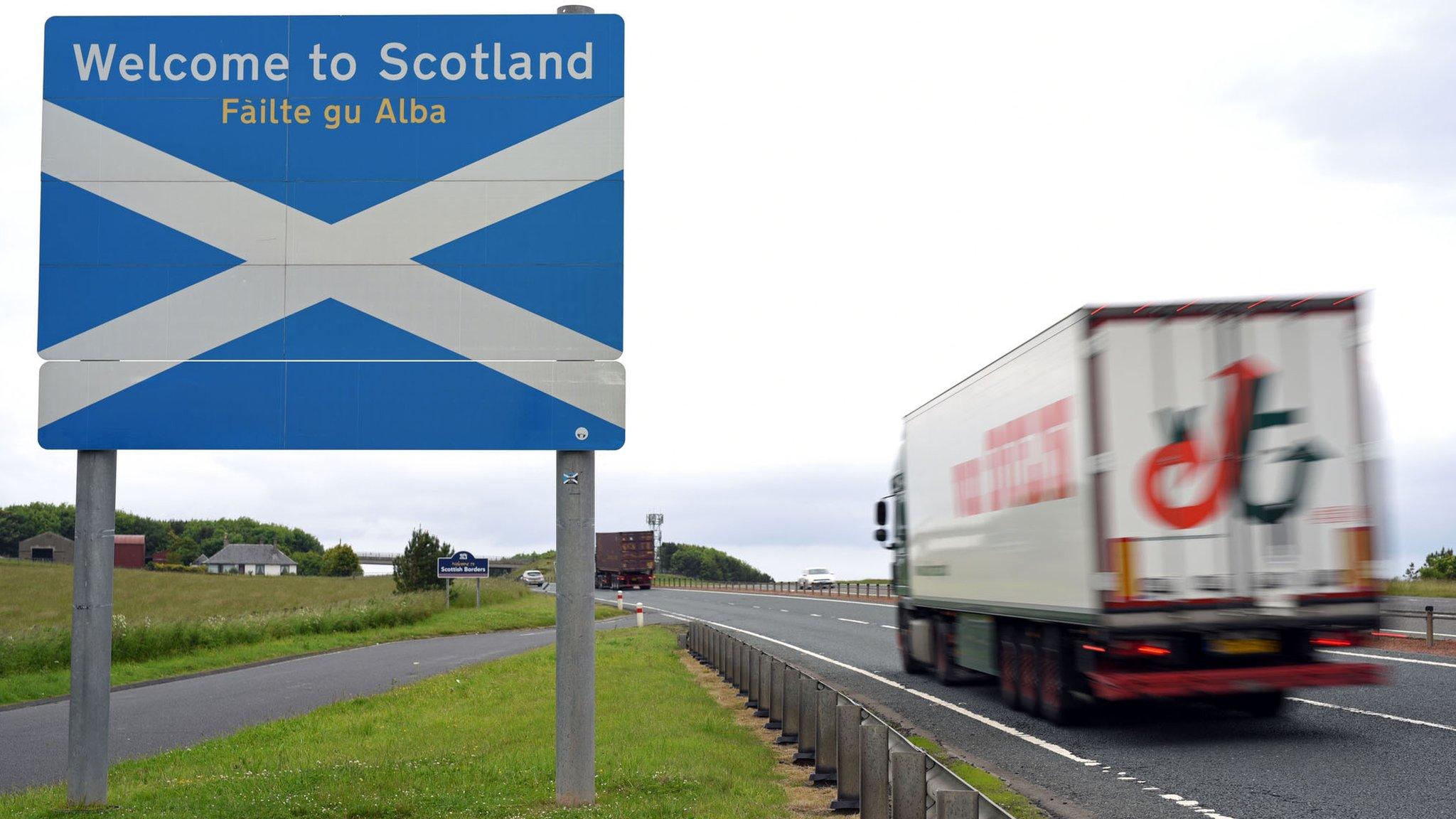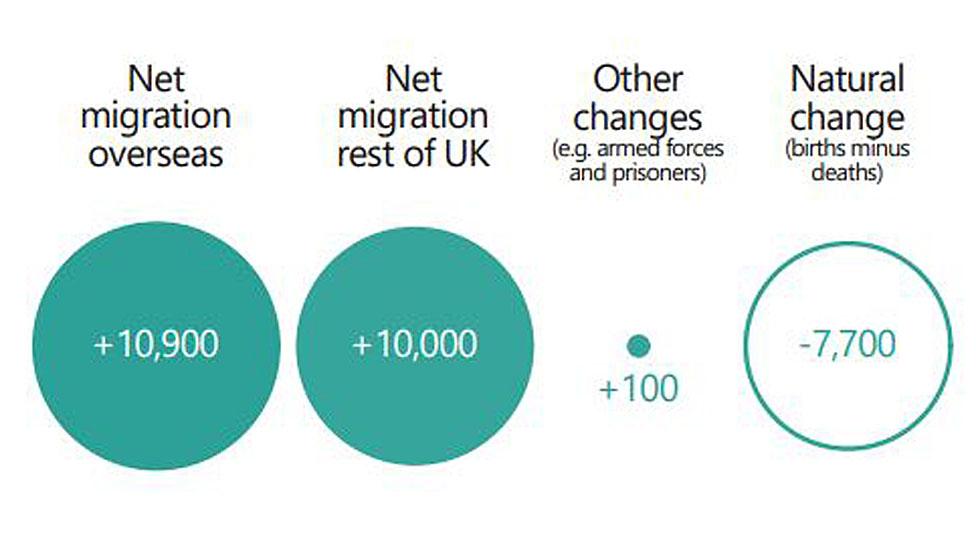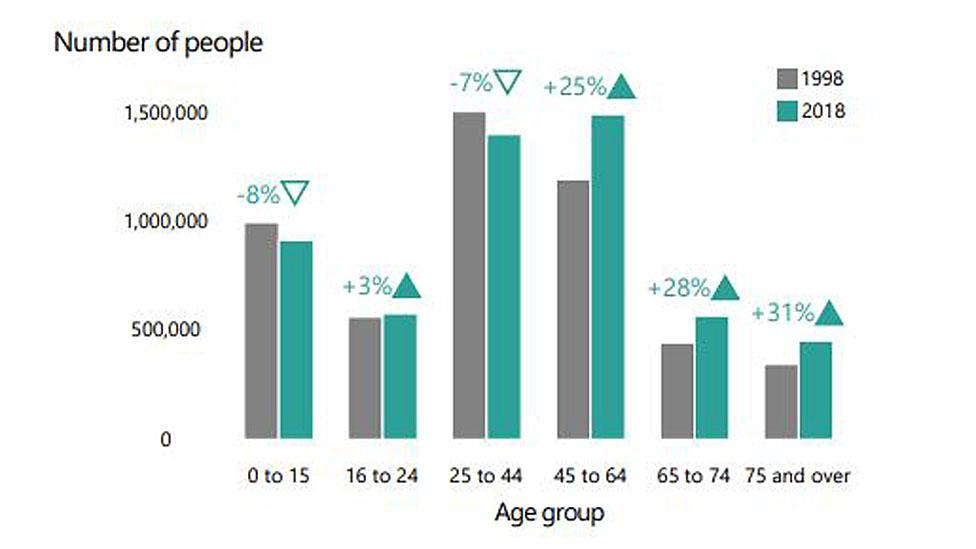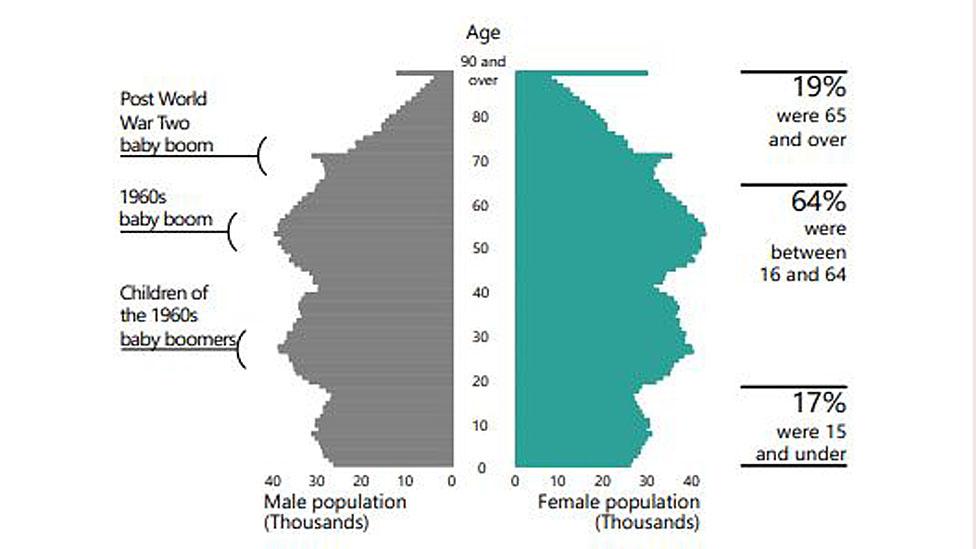Scotland's population rises for ninth year in a row to record high
- Published
- comments

Scotland's population has risen to a record high of 5.44 million - despite population growth slowing down.
This is the ninth year in a row that the total has gone up, according to statistics from the National Registrar for Scotland., external
The number of people living in Scotland rose by 13,300 (0.2%) over the year to 30 June 2018.
The increase was driven by migration, which was responsible for an increase of 20,900 in the country's population.
A total of 10,000 more people came to Scotland from the rest of the UK than left in the opposite direction, and there was an increase of 10,900 in net migration from overseas.

However, the rate of population growth slowed for the second year running.
This was due in part to a reduction in overall net migration, which fell by 3,000 due to an increased number of people leaving Scotland to move overseas.
There were 7,700 more deaths than births over the 12-month period - the largest "natural decrease" on record.


The figures highlighted that Scotland's population is getting older, with a 31% increase in the number of people aged over 75.
The numbers aged between 45 and 64 and between 65 and 74 also rose by 25% and 28% respectively, while the numbers of under-15s and 25 to 44-year-olds both fell.
Paul Lowe, registrar general for Scotland, said migration continued to be the main driver of Scotland's population growth.
He added: "We have seen a mixed picture regarding population growth, with 18 of Scotland's council areas seeing an increase in population compared to 14, mostly rural or island, which experienced depopulation."